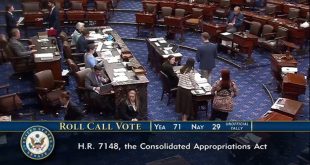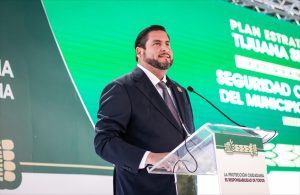Mayor Ismael Burgueño Ruiz officially launched Tijuana Segura, the 2025–2027 Strategic Public Safety Plan for the city of Tijuana, focused on social co-responsibility, citizen participation, and the use of technology to strengthen public security.
Burgueño described the initiative as part of a human-centered government approach, emphasizing that true security is achieved not through force but through justice, dignity, and community involvement. The plan, he noted, reflects the voices of mothers, youth, merchants, police, and activists.
Backed by the Tijuana City Council and Baja California’s State Congress, the administration has doubled the security budget to over 1.97 billion pesos. This will fund 431 new patrol vehicles, each equipped with internal and external cameras, and expand the city’s surveillance network to 6,366 cameras at 1,506 key locations by year’s end.
The mayor also announced enhancements to specialized units such as the Cyber Police and Missing Persons Task Force, as well as Tijuana’s integration into the state-led Escuadrón Violeta initiative to address gender-based violence, in coordination with Governor Marina del Pilar Ávila Olmeda.
“Tijuana is undergoing a security transformation thanks to the national leadership of Mexico’s first female president, Claudia Sheinbaum,” said Burgueño. “We are seeing real results.”
He added that public safety also depends on illuminated streets, accessible schools, youth opportunities, support for women, and community-driven public spaces.
Municipal Secretary of Security and Citizen Protection, José Alejandro Avilés Amezcua, outlined the plan’s 10 strategic pillars, which include community engagement, police professionalization, interagency coordination, targeted patrolling, and violence prevention. It also defines five key objectives and ten strategies to enhance police performance, foster public trust, prevent violence—particularly among vulnerable groups—and promote civic justice.
The strategies include crime prevention, gender violence response, coordinated operations, police training, road safety awareness, and implementation of the National Civic Justice Model. The plan is grounded in territorial diagnostics tailored to Tijuana’s 14 police districts and seven municipal sections.
“Our mission is clear: protect with justice, act ethically, and serve with integrity,” said Avilés Amezcua. “We aim for a close, professional, and humane police force.”
City Councilman Ranier Falcón Martínez, chair of the Citizen Security and Civil Protection Commission, emphasized that public safety is a shared responsibility, stating: “It begins at home, strengthens in the streets, and becomes reality when government and citizens work together.”
During the event, Mayor Burgueño swore in members of 183 Citizen Security Committees, who will support crime prevention and promote legal culture.
Ana María Navarrete Vargas, speaking on behalf of the committees, pledged collaboration with the local government. Business leader Carlos Jaramillo Silva, of the Tijuana Business Advisory Council, praised the mayor’s leadership, noting the private sector’s willingness to support collective safety efforts.
The presentation was attended by Secretary of Government Arnulfo Guerrero León, State Congress President Evelyn Sánchez Sánchez, Deputy Jorge Ramos Hernández, regional peacebuilding coordinator Leonardo Barreras Vega, municipal cabinet members, civil society groups, business leaders, local legislators, and members of the public.



